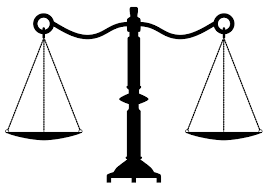Can I Receive WCB and LTD Benefits at the same time?

Living with a disability is a challenge of its own many of us hope to never face. If it does happen, living on a reduced income does not make it any easier. Anyone on long-term disability (LTD) leave should look into all the benefits they could be entitled to and how to maximize their benefits to increase their quality of life, and focus on rehabilitation.
What Are the Advantages of Receiving WCB and LTD Benefits at the Same Time?
Earning more
Applying for both WCB and LTD benefits can result in an increased amount of monthly compensation you receive. Coordinating these claims can be tricky without the help of an experienced professional, but can pay off if done correctly. If an employee is approved for LTD benefits, and the amount they would receive is higher than what they receive in WCB benefits, they may be eligible to receive the difference. For example, if an employee’s LTD benefits would be $3000 monthly, but they are only earning $2500 monthly in WCB, the $500 difference could be paid out by the insurance provider.
Owing Less
Notifying your LTD insurance provider of your WCB claim could save you from paying your insurance premium while receiving disability income benefits, including Workers Compensation. The majority of LTD insurance contracts include coverage for waiver of premium. The waiver of premium excuses the policyholder from paying their insurance premium while on WCB or other disability income benefits.
To apply for a waiver of premium, you must first make your insurer is aware that you are on a claim. Depending on the policy and insurer, the timeframe from when a waiver of premium begins differs. The timeframe is usually pre-determined by the contract of your LTD policy. The date last worked and the date an insured person begins receiving disability payments are generally the driving factors that determine your timeframe for wavier of premium. The waiver of premium typically comes into play after the policyholder has received disability income payments, like WCB, for six months.
Consider the following example for more understanding of a waiver of premium benefit. Jane works for a company and is a member of their group insurance plan. This plan provides her with dental and extended life benefits, life insurance, and LTD. In this plan, there is a waiver of premium benefit. On July 24, 2020, Jane suffered a workplace injury. Jane claimed WCB and was accepted. Benefits payments were approved and made for 16 months, after which Jane returned to work. Jane’s employer did not notify their insurance provider of the WCB claim, and the insurance provider continued to charge premiums for the entire 16 months Jane was not working. If the insurer had been notified, because of the waiver of premium benefit, Jane could have saved herself hundreds or even thousands of dollars as she would not have been required to pay her monthly insurance premium.
Ensuring Future Compensation
An LTD insurance plan can offer occupational or non-occupational coverage. It is essential to understand which policy you fall under and how that affects your future if filing a claim. If your coverage is non-occupational, your insurance provider will not cover workplace injuries, accidents, or illnesses. If you sustain a workplace injury with an occupational coverage plan, it is required you submit an LTD claim.
If you are covered by both your LTD occupational coverage plan and worker’s compensation, for the safety of your future benefits and by contract, you must apply to both programs. Employers often try to persuade employees not to file WCB and instead only apply for disability insurance benefits. This is a common occurrence, and most employees do not understand the implications not applying for both can have. Not applying for both WCB and LTD benefits can result in an employee being denied both sets of benefits because of technical reasons, even if they are legitimately disabled, and left without any benefits and unable to work.
What If I Only Apply for One and Not for Both Programs
LTD and not WCB
If you apply for LTD insurance without applying for WCB, it could render you ineligible for both types of benefits. Employers are known to convince employees to only apply for LTD to avoid worker’s compensation claims, but this could be extremely detrimental to the future of the employee making a claim. Even if the employee would otherwise be eligible for benefits under both programs, because they decided not to apply for WCB, they may now not be eligible to receive either.
Our experienced lawyers will tell you that you must apply for both for the safety of your future. The provisions and guidelines in your insurance policy are different than the ones followed by WCB. If your WCB claim is denied or cut off and benefits are discounted, you may still be eligible for LTD benefits.
WCB and not LTD
Worker’s compensation is not meant to last forever or even relatively long-term. If you apply and receive WCB, you will receive benefits for a limited amount of time. You may have thought that by the time your WCB is up, you should have no issues returning to work. However, if you are still unable to return to work after your WCB is resolved, you could be uneligible for your LTD benefits and left without any income.
A common reason you may not be eligible for LTD benefits after the duration of receiving worker’s compensation is because of something called a limitation period. A limitation period sets out the amount of time you have to start a lawsuit against LTD denial. If you do not file your lawsuit within the limitation period, you could lose your right to sue for LTD benefits. Figuring out your limitation period is not as simple as one might think. Different conditions factor into your deadlines for long-term disability claims. Every LTD contract is different, and the terms can be confusing, but our article on time limits to start a lawsuit for LTD benefits can help you have a better understanding.
How Can I Apply for WCB and LTD Benefits at the Same Time in Nova Scotia?
An LTD insurance plan can offer occupational or non-occupational coverage. It is essential to understand which policy you fall under and how that affects your future if filing for a claim. If your coverage is non-occupational, your insurance provider will not cover workplace injuries, accidents, or illnesses. If you sustain a workplace injury with an occupational coverage plan, it is required that you submit a long-term disability claim.
When applying for workers comp and LTD, it should be a coordinated effort. This means that WCB should be aware of your LTD claim, and your insurance provider should be aware of your WCB claim. Without being transparent about both applications, you could be seen as trying to “double-dip,” which is not allowed. Your transparency will help make your applications smoother and likely get you to your benefits faster, without being seen as or penalized for trying to double-dip.
Applying for LTD
The process of applying for LTD is not an easy one. Many steps are involved to go from getting your application to receiving benefits. We’ve outlined the five main steps you’re likely to go through when applying for LTD to help you understand what to expect.
- Acquire an application from your employer
An application for LTD benefits is most often obtained through your employer’s Human Resources Department. They should be able to provide you with all the necessary documents and instructions on how to complete your application. If your employer does not provide you with the materials you need, there’s a good chance you can find the same documents and information online by searching the web. Be sure to include the name of your insurer and something like “long-term disability application” in your search.
- Complete and submit your statement
The Employee’s Statement is a section of the LTD application you are responsible for completing. The information required varies among different insurance companies. The answers that you are commonly required to provide are:
- Your name
- Social insurance number
- Date of birth
- Contact information
- Information on your family situation
- Your current and past work history
- Information about your disability, including the contact information of your medical providers
- Acquire your employer’s statement
A portion of your LTD application must be filled out by your employer. They are required to answer several questions about your work history and the nature of your job at your company.
- Acquire a statement from your doctor
You must also supply your insurance company or claim administrator with statements from your doctor and medical specialists, along with yours and your employer’s statement. We recommend filling this form out with your doctor in-person to ensure they fill out the form with as much detail as possible, and so you are there to answer any additional questions they may have.
- Gather any other supporting information that may help your claim
Don’t assume that with your employee’s statement, employer’s statement, and doctor’s statement(s), you have everything you need for a successful claim. Insurance companies will always search for ways to avoid paying for LTD benefits. If there is anything else you can provide your insurer with that will help you prove the severe and prolonged nature of your disability, we recommend you do so. The additional information you provide could be the driving factor that leads to a successful claim and might even speed up how fast your LTD claim gets processed.
WCB Claim Process in NS
You are required to report your illness or injury as soon as possible when applying for WCB. Many programs have a six-month deadline to file a report. Applying for worker’s compensation is relatively similar to applying for LTD benefits. To learn more about applying for WCB in Nova Scotia, you can consult the Worker’s Board of Compensation’s website on the WCB claim process.
Contact an Injury Attorney at Valent Legal for a Free Consultation
Understanding the benefits that you’re entitled to can be confusing, frustrating, and extremely time-consuming for anyone. If you have recently become disabled, your time and effort should be spent on rehabilitation and looking after your wellbeing. Spending hours on research that comes up inconclusive or becoming upset at the lengthy applications could quickly lead you to give up applying for WCB and LTD benefits altogether, a decision you could regret forever.
Contact one of our experienced long-term disability lawyers at Valent Legal for a free consultation. We can help make sense of your situation, the benefits you’re entitled to, and what steps you should take to prepare you for your future of living with a disability.






















